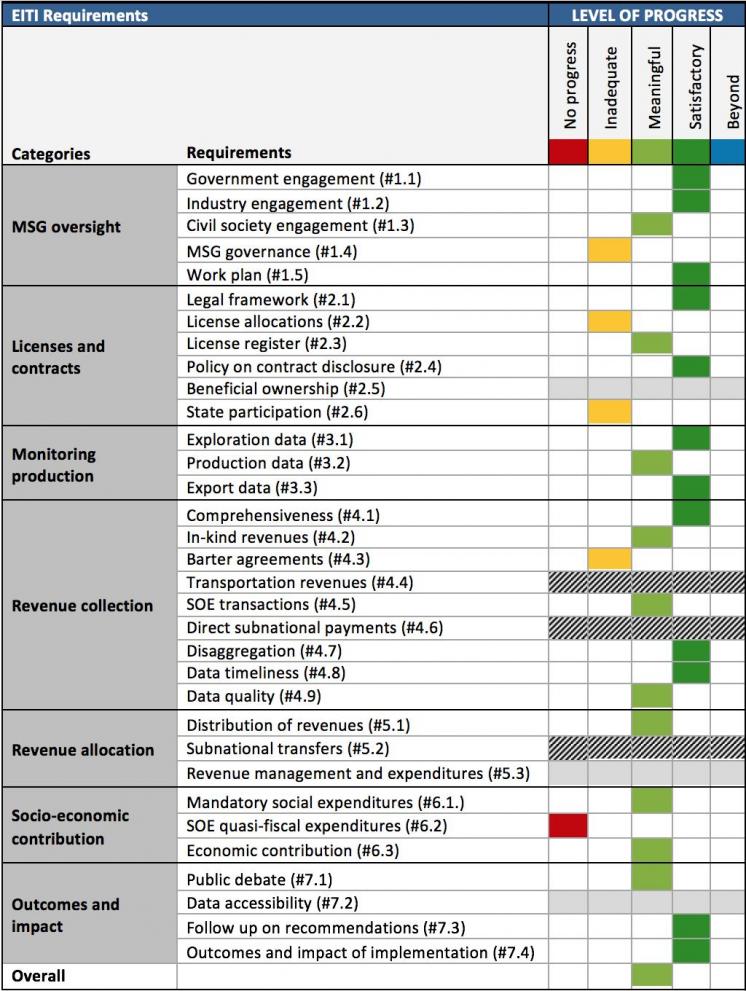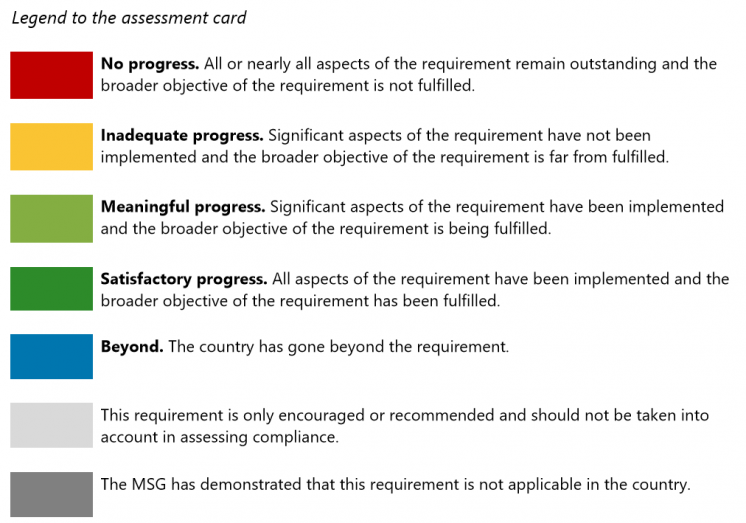
The Republic of the Congo has made meaningful progress in implementing the EITI
Outcome of the Validation of the Republic of the Congo
Today the international EITI Board agreed that the Republic of the Congo has made meaningful progress in implementing the 2016 EITI Standard. The Board noted challenges related to space for civil society and encouraged all stakeholders to work together to improve and preserve the space dialogue and informed public debate.
With rising oil production, the Republic of the Congo’s economy remains highly dependent on crude oil production, which accounted for 22% of GDP, 80% of exports and 70% of government revenues in 2016.
A new transparency code translates the EITI Requirements into domestic legislations
The Board praised the Government of the Congo’s effort for embedding EITI requirements in its national legislation. Having published its production sharing agreements since 2012, the Republic of the Congo translated this practice into law through the transparency code adopted in March 2016. The transparency law also includes provisions related to key EITI Requirements, beneficial ownership disclosure, state participation managed by the national oil company, publication of production and export data, reporting on cost-oil, revenues and expenditure by the national oil company, audit and reconciliation of government revenues, transparency of resource allocation and quasi-fiscal expenditures. The law also breaks new ground by mandating project-level reporting and open data.
Use of EITI reports by parliamentarians and Coverage of the forestry sector
The Board welcomed the use of EITI Reports by parliamentarians in the budget review process in the Republic of the Congo. The Board also noted the dissemination effort led by civil society to inform citizens and drive report. The debate on the maritime tax was highlighted as a good example, where EITI was used to demand accountability. The latest EITI Report shows that the forestry sector contributed significantly more revenues to the state treasury than the mining sector. While reporting on the forestry sector is far from being comprehensive, the Board welcomed the use of the EITI to respond to citizens’ demand for information.
Jonas Moberg, Head of the EITI commented that “The EITI Requirements are clearly highly relevant in the Republic of the Congo and we welcome the progress being made. The Government of the Republic of the Congo has demonstrated its commitment to the EITI in various way, including the adoption of a transparency law, which if implemented would provide valuable source of information for all stakeholders.” We of course recognise that the situation is not perfect, and we will encourage the Government to protect civil society substantially engaged in the EITI process, including those who express critical views, he added.
More work is needed to protect space for civil society and transparency of state owned companies.
In addition to internal governance challenges of the EITI process itself, key areas of concerns include limited transparency in the license allocation system, inadequate progress on EITI Requirements related to state-owned enterprises, and barter type agreements. Off-budget expenditures that are not adequately covered in EITI Reports remain a concern.
Scorecard


Notes
- Validation is the EITI’s independent evaluation mechanism. It assesses countries against progress made in meeting the 2016 Standard.
- See here for a full explanation of the various levels of progress under the EITI Standard.
- See the interactive scorecard for Republic of the Congo here.
- The decision in full: 2018-34/BM-40/BP-40-6-C
- The documentation of Republic of Congo's Validation can be found here.
- For further information about the EITI in the Republic of the Congo, please visit the country page on the EITI website.
Related content


Looking back, moving forward: Taking action for accountability in natural resource governance



